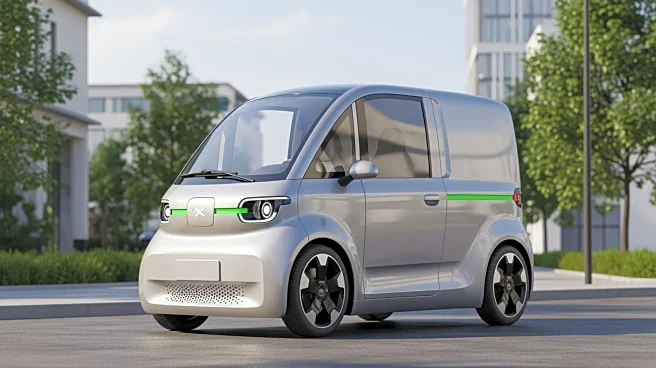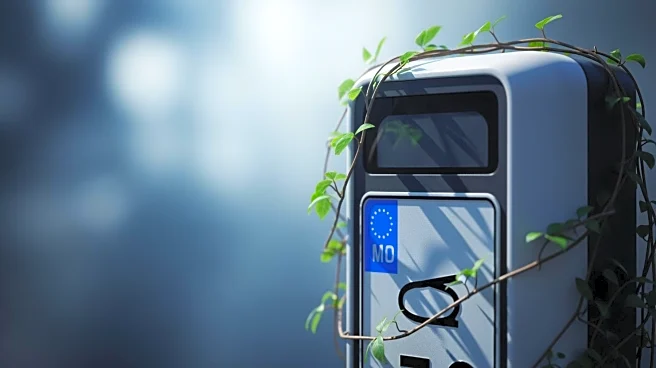What's Happening?
Royal Mail has introduced a fleet of 104 micro electric vehicles (MEVs) across several UK cities, including London, Bristol, and Brighton. This initiative replaces 52 traditional red vans and is expected
to save 242 tonnes of carbon emissions annually. The MEVs are designed to be more efficient in urban areas, offering easier parking and driving capabilities. They can be charged using standard three-pin plug sockets, making them accessible for use at various delivery offices. This move is part of Royal Mail's broader strategy to achieve net-zero emissions by 2040, complementing its existing fleet of 7,000 electric vehicles.
Why It's Important?
The launch of the UK's largest MEV fleet by Royal Mail marks a significant step towards sustainable logistics and transportation. By reducing carbon emissions, the initiative contributes to improved air quality and aligns with national and global efforts to combat climate change. The transition to electric vehicles reflects a growing trend in the logistics industry to adopt environmentally friendly practices. This move not only enhances Royal Mail's operational efficiency but also positions the company as a leader in sustainable delivery solutions, potentially influencing other logistics providers to follow suit.
What's Next?
Royal Mail plans to invest in an additional 1,800 electric vans and supporting infrastructure over the next year, further expanding its commitment to sustainability. As the demand for delivery services increases during peak seasons like Black Friday and Christmas, Royal Mail is hiring approximately 20,000 temporary roles to manage the surge. The company will continue to explore innovative solutions to enhance delivery efficiency and reduce environmental impact, potentially setting new standards for the logistics industry.
Beyond the Headlines
The shift to micro electric vehicles by Royal Mail highlights the broader implications for urban planning and transportation policies. As cities aim to reduce traffic congestion and improve air quality, the adoption of smaller, more efficient delivery vehicles could play a crucial role. This initiative may also drive advancements in electric vehicle technology and infrastructure, supporting the transition to a low-carbon economy. Additionally, Royal Mail's efforts may encourage other sectors to prioritize sustainability in their operations, fostering a culture of environmental responsibility.









